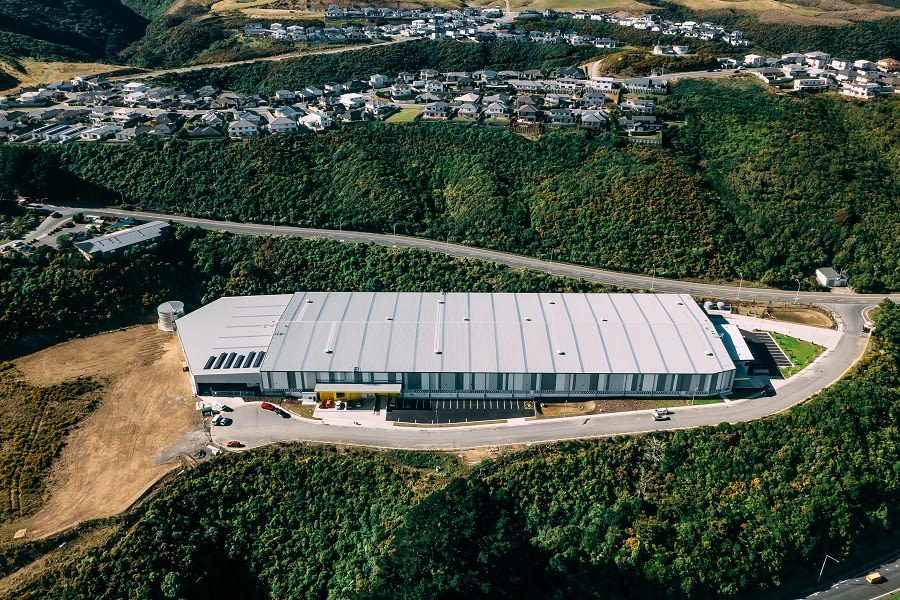
Online shopping on the chopping block as households cut discretionary spend
E-commerce is in its relative infancy in New Zealand, but the pandemic bubble has burst alongside the cost of living crisis.
In NZ Post’s half-year results, released yesterday, it said parcel volumes had dropped significantly in the six months to December.
After years of growth in online sales through the pandemic as consumers changed behaviour, NZ Post said parcel volumes had slumped back to 2019 levels – it also believes consumers are spending less per transaction online than previously.
READ MORE: * Reserve Bank faces difficulty balancing cyclone inflation and devastation * ‘Challenging conditions’: Warehouse to lay off a further 150 staff * Reserve Bank would back a Commerce Commission probe into bank profits
New Zealanders spent about $4.6 billion on online shopping in 2019, jumping to $5.8b in 2020.
In 2021 New Zealand’s online spending peaked at $7.67b, up 67 percent on pre-pandemic levels, and last year slowed to $6.07b, still far above 2019.
The pivot to ecommerce during the pandemic was a big deal for New Zealand retailers as online shopping had been underserved compared with evolved markets such as the United Kingdom where more than a quarter of all sales are done online.
"We've definitely seen a shift away from some of those ecommerce orders and back into in-store purchasing. But at the same time, we've also seen an economic slowdown so people are spending less overall and perhaps ecommerce is one of the victims." – Greg Harford, Retail NZ
Pre-pandemic just 8 percent of New Zealand’s retail spending was online, peaking at 12 percent in 2021 and sitting at 11 percent for 2022.
Yesterday, NZ Post chief executive David Walsh said current economic conditions meant consumers were buying less, buying in different ways and making different spending and saving choices.
Retail NZ chief executive Greg Harford said retailers were telling him things had dropped away markedly in the ecommerce space.
"We've definitely seen a shift away from some of those ecommerce orders and back into in-store purchasing. But at the same time, we've also seen an economic slowdown so people are spending less overall and perhaps ecommerce is one of the victims."
According to Stats NZ, total retail sales fell four percent in the December quarter, while retail card spending in the month of December fell 2.5 percent (seasonally adjusted) or $166m compared with November, the first drop in nine months.

Card spending on clothes and shoes, a major ecommerce category, was down $17m or 4.7 percent.
According to NZ Post, December’s online spending was $480m, down 23 percent from December 2021 and 7 percent below 2020. Consumers were spending $2.07 less each transaction.
“Everything's sort of slowing right across the board,” Harford said. “In the ecommerce space you might have a few more discretionary purchases being made, which may be contributing to the decline that we're seeing.”
Overall Boxing Day 2022 spending, across online and instore, was $165m, making it the lowest Boxing Day spend for New Zealand since monitoring spending started in 2019.
One large retailer that has pumped significant resources into online retailing is Briscoe Group, the owner of Briscoes and Rebel Sports.
In the 12 months to January 29, Briscoe had record sales of $785.9m, of which 18.97 percent were online – $149m. In its previous financial year, 21.47 percent of its sales were online, working out to $159.8m.
The 6.7 percent drop in online sales was despite functionality and productivity improvements made across the eCommerce platform during the year.
Briscoe managing director Rod Duke was unavailable for comment, but announcing the results said he was thrilled by the sales it had achieved in the year in the face of deteriorating economic factors.
Like many retailers, NZ Post has also invested heavily in ecommerce, embarking on a 10-year, $200m-plus infrastructure project to enable more efficient handling of parcels.
NZX-listed Goodman Property Trust has also invested heavily in logistics assets to enable greater levels of ecommerce. Managing director James Spence said consumer expectations of faster and more convenient delivery of their online purchases had been a major driver for properties suited to distribution in Auckland over the last few years.
While online sales had dipped slightly, he said the general trend was still an upwards one as the New Zealand market grows to more closely mirror markets like the UK and Asia.
Its portfolio has nearly zero percent vacancy and its $600m development programme, which includes two new large facilities for NZ Post, is also 93% committed.







